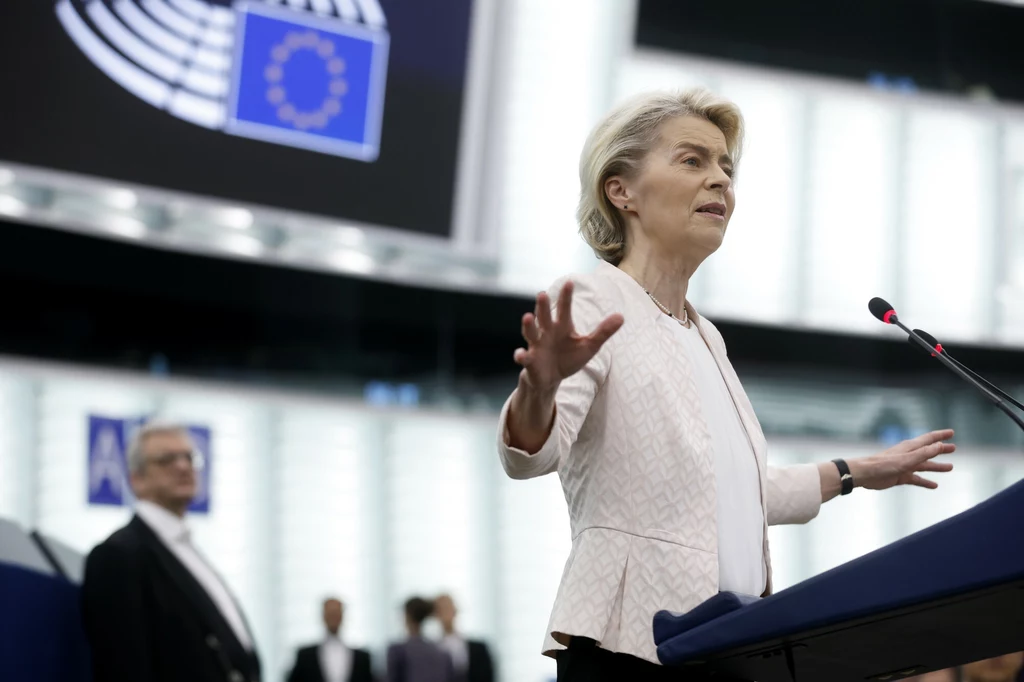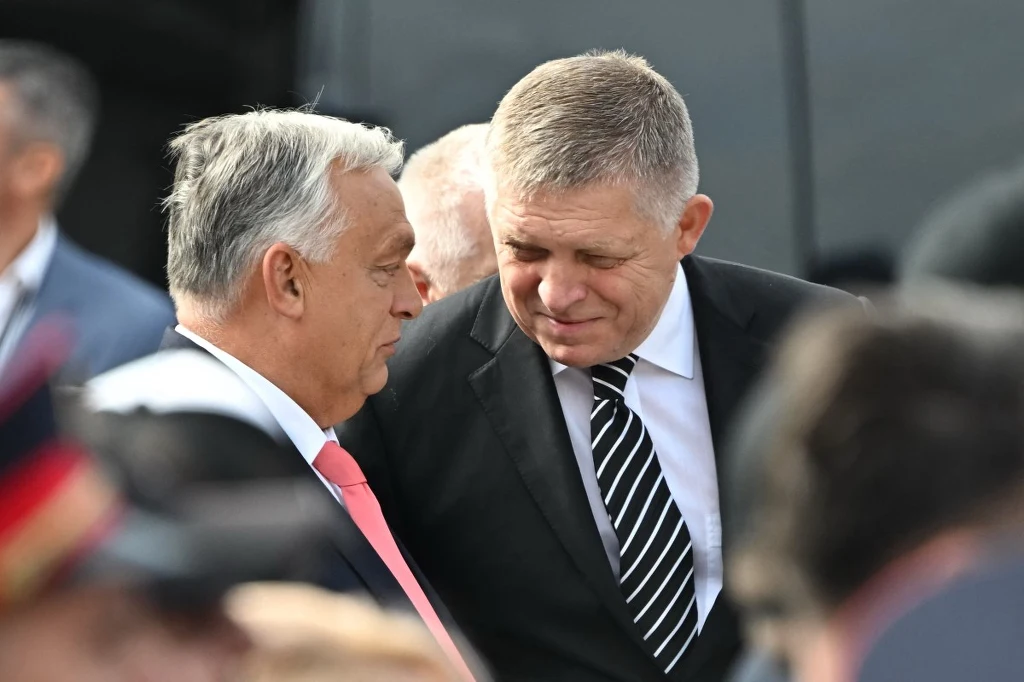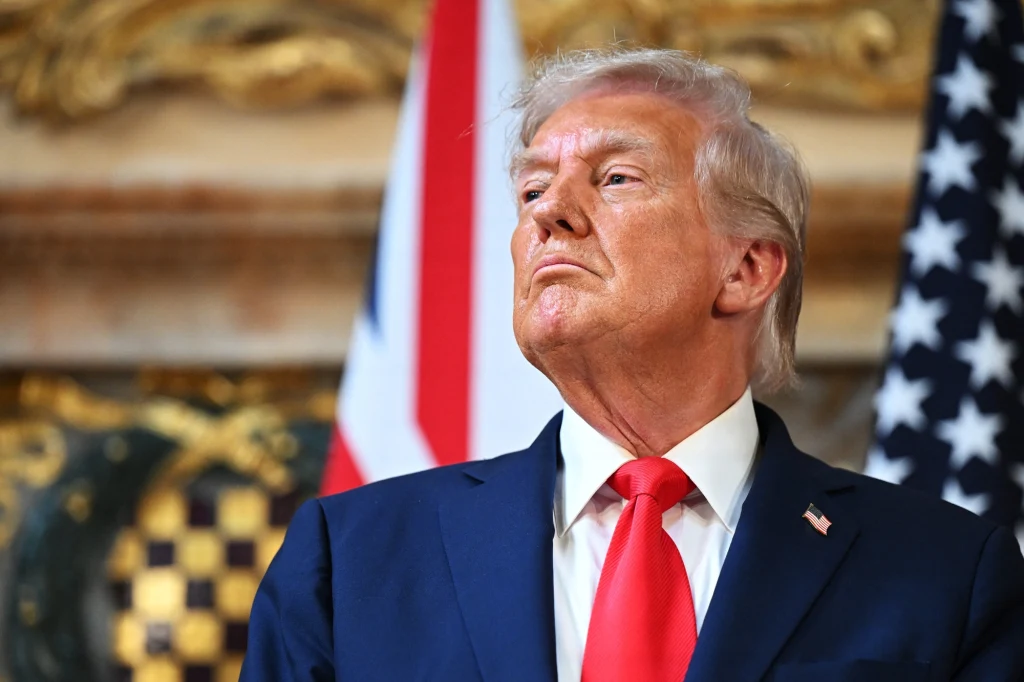In short
- The European Union is introducing a total ban on Russian gas and oil imports, effective from 2028, to weaken Russia's financing of the war.
- Slovakia and Hungary resisted, but ultimately agreed to the new regulations in exchange for EU support and time to adapt their energy infrastructure.
- Under pressure from the Donald Trump administration, the EU is tightening sanctions and eliminating Russian fuels from the market, preparing arguments for negotiations with the US to impose additional sanctions on Russia.
- We've done as much as possible today. This is the strongest possible blow to the financing of Putin's war machine and his energy sector, Energy Minister Miłosz Motyka said in Luxembourg on October 20. - We wouldn't be able to negotiate or work out another agreement, he emphasized.
It was in Luxembourg that the EU energy ministers met. At the Council of the European Union meeting, they voted on a regulation establishing a complete ban on the import of Russian liquefied natural gas (LNG) and natural gas (transported via pipelines) into the European Union from January 1, 2028. The only countries opposed to this solution were Slovakia and Hungary. The remaining 25 member states supported the document.
But that's not the end of it, because even before the summit of EU leaders scheduled for October 23-24, the European Union adopted the 19th package of sanctions against Russia. One of its key elements is to remove Russian gas from the EU market.
Three paths to one goal
Both the EU Council Regulation and the 19th Sanctions Package are important elements of the EU's long-term energy policy and its strategic security. First and foremost, the REPowerEU program, which aims to reduce dependence on Russian fossil fuels through diversification of energy supply sources, greater energy efficiency, and the rapid development of renewable energy sources.
- In particular, we are looking towards a faster phase-out of the Russian fossil fuel"shadow fleet" as well as third countries (buyers and traders of Russian raw materials - editor's note).

Her words should be reflected in actions across the EU before the end of the year. Work to achieve this goal has been ongoing (and continues to be ongoing) for weeks, and in some cases months, along three tracks.
The first path is the aforementioned REPowerEU program and the European Commission's own initiative to phase out Russian fossil fuels. The initial version included not only coal, oil, and gas, but even radioactive materials for nuclear energy. However, during the legislative process, this last component was dropped.
This is precisely the path that the Council of the European Union vote on October 20th addresses. The draft regulation was submitted to the joint committees of the European Parliament in the following days, where it was approved by an overwhelming majority. However, MEPs also added a plan to phase out Russian gas and oil and petroleum products to the proposal. Whether their proposal will hold remains to be seen after the ongoing trilogue, i.e., informal negotiations between the European Parliament, the Council of the European Union, and the European Commission.
Interia's interlocutors from the European Parliament, however, are confident that passing the new legislation is a mere formality."There were only a few votes against in the EP committees, and over 90 in favor of adopting the regulation. This shows absolute conviction and absolute political will to see this through. The vote in the EP will be similar, as it will reflect what happened in the joint committees," says Krzysztof Hetman, MEP for the Polish People's Party (PSL), who is also a member of one of the committees dealing with the project.
Until now, they (Slovaks and Hungarians - editor's note) were eager to take energy resources from Russia because it was economically viable, but it also served as a bargaining chip in talks with other EU countries and the European Commission itself. However, they know perfectly well that there is no turning back from this change. Krzysztof Hetman, MEP and vice-president of the Polish People's Party (PSL)
Initially, the EU wanted to phase out Russian gas earlier than January 2028. Ultimately, however, it made concessions to countries still importing gas from Russia or third countries."They must prepare well for this; they can't turn off the gas tap overnight. They must prepare alternative gas sources, sign contracts with suppliers, and adapt the infrastructure. This requires time for energy investments," explains MEP Hetman.
The second path is the 19th package of EU sanctions against Russia, adopted on the morning of October 23. It originally assumed the expiration of short-term contracts for Russian gas transported via pipelines on January 1, 2026, and for long-term contracts for Russian LNG on January 1, 2027. The latter date remains in force; the former will be slightly postponed because the restrictions will come into effect six months after the new law is approved.
This requires unanimity among member states. Slovakia was the last to block the changes, but Bratislava was eventually convinced. Prime Minister Robert Fico's government demanded guarantees from the European Commission regarding high energy prices, as well as adapting climate goals to the needs of the Slovak automotive and heavy industry.
The final, third path to eliminating Russian energy resources from the EU market is the tariffs on Russian oil pushed by the European Commission. This is a direct result of pressure from US President Donald Trump and the desire to use it to implement a strategic step for the entire EU. It was also a kind of Plan B for the European Commission in the event that unanimity among the 27 member states was not achieved on the 19th package of sanctions against Russia.
Interia's sources in Brussels admit, however, that tariffs may not be necessary. If the final version of the regulation discussed during the trilogue maintains the ban on Russian oil imports introduced by MEPs, the matter will resolve itself. However, if the European Parliament withdraws its decision after negotiations with the EU Council and the European Commission, the European Commission will be able to continue work on introducing new tariffs on Russian oil.
Why are there three paths to the seemingly same goal within one organization? - This multitude of legislative proposals and their scattering in various legal acts results from the chronology of political events, but also from the EC's restraint in the June proposal to abandon Russian gas - explains Tomasz Włostowski, a lawyer working in Brussels, in an interview with Interia.
Only President Trump's unexpected attack on Russian oil exports, as well as growing Russian provocations violating the airspace of several EU countries, created the right political climate to launch a frontal attack on the remaining oil imports to Hungary and Slovakia, points out an expert on sanctions and EU trade policy.

The hard data doesn't lie. When the EU imposed an embargo on Russian oil purchases in December 2022, Slovakia and Hungary negotiated an exemption due to problems with alternative supply sources. The point is, Hungary not only didn't stop buying Russian oil, but actually increased its purchases. According to the Finnish Centre for Energy and Clean Air Research, in 2021, Hungary imported 61% of its oil reserves from Russia; in 2024, it would grow to 86%. In Slovakia, this figure is almost 100%.
Slovakia and Hungary have from the outset raised the issue of their lack of energy alternatives, although this is untrue. Croatia, for example, once offered assistance to Hungary, operating the Omisajl oil import terminal on the island of Krk. Omisajl is connected to the JANAF pipeline and already supplies oil to Serbia. Sending it to Hungary wouldn't be a problem, as the pipeline connecting the two countries is available. However, Prime Minister Viktor Orban's government cited excessively high transmission fees for the transport of the raw material.
And Slovakia? The only refinery in the country belongs to the Hungarian company MOL. If it weren't for this, there would have been no Russian oil in Slovakia long ago. Diversification wouldn't be a major problem, as the neighboring Czech Republic could help with the necessary infrastructure. Poland also offered its assistance to the Slovaks, but only in the matter of gas supplies.
Ursula von der Leyen's own determination is evident, as she expressed it in her State of the EU address. She wants to press all countries harder on this issue.
Adam Jarubas, MEP and president of the Polish People's Party (PSL)
So there were and are alternatives, only more expensive. This is no surprise, because due to Western sanctions, Russia currently competes on global markets primarily on the price of its oil and gas."This is a game between Fico and Orbán. EU bodies and politicians in the EU are aware that these two countries are trying to grab something for themselves at every stage. However, the issue of Russian oil, especially after the Russian drone attack on Poland, is so important that pressure has increased for a quick resolution of this matter," Krzysztof Brejza, MEP from the Civic Coalition, told Interia.
His colleague from the Polish People's Party (PSL) Krzysztof Hetman is convinced that now"Slovakia and Hungary will have to adapt." In his opinion, the governments in Bratislava and Budapest are, however, in talks with Brussels to receive EU support in reorienting their energy infrastructure."I have no doubt about that," says the PSL vice-president. He adds:"Until now, they were eager to buy energy resources from Russia because it was economically viable, but it also served as a bargaining chip in talks with both other EU countries and the European Commission itself. However, they know perfectly well that there is now no turning back from this change."
What's left for Slovakia and Hungary is negotiations. They agree to pressure Russia on gas, which is a much bigger problem across the EU than oil and petroleum products, in exchange for a somewhat more relaxed approach to diversifying oil supplies. The effects are already visible, as the regulation voted on by the EU Council stipulates a complete phaseout of Russian gas by early 2028. Meanwhile, the 19th package of EU sanctions against Russia focuses on gas, not oil.
And it's hardly surprising. In 2024, supplies of this raw material from Russia to the EU amounted to approximately 52 billion cubic meters. On the one hand, this is almost three times less than in 2021 (150 billion cubic meters), before the Russian aggression against Ukraine; on the other, it still represents 19% of total gas imports to the EU market (in 2021, it was 45%). For comparison: oil imports from Russia constitute only 3% of total imports of this raw material to EU countries, although paradoxically, the value of these imports is higher than in the case of gas. Russian gas, on the other hand, is still purchased by eight EU countries: Belgium, France, Greece, Spain, the Netherlands, Portugal, Slovakia, and Hungary. The Kremlin earns approximately €15 billion annually from gas exports to the EU.
Trump achieved his goal."Ursula's determination is evident."
Tightening regulations on Russian gas imports, and perhaps even ultimately eliminating Russian oil, is a major success for the Donald Trump administration. In recent weeks, the US president has sharply criticized European NATO members for demanding harsh US sanctions against Russia, while EU and NATO countries continue to source their own energy supplies from Russia.
- They must immediately cease all energy purchases from Russia. We will be discussing this today with all the European countries gathered here - the American leader said at the UN at the end of September. - Just think: they are financing a war against themselves. Who the hell has heard of this? - he was amazed.

The introduction of new bans and sanctions is intended to give Brussels a strong argument in its talks with the US administration. It is intended to prove that the EU has accepted the criticism and learned from it. And now it's time for the US part of the task: the introduction of harsh so-called secondary sanctions on Russian oil. We wrote about how powerful this tool is in Interia some time ago.
Trump is already pressuring India to halt Russian gas imports through that country. He has similar plans for China."He just needs to have some arguments in hand, because the countries buying from Russia were telling him: 'Wait a minute, you're forcing us into actions that are economically unfavorable from our perspective,' and yet Europe continues to buy Russian gas," says MEP Krzysztof Hetman in an interview with Interia."That's why Europe had to show that it was finally cutting ties with Russian gas and thus provide even stronger arguments for Trump," adds the PSL vice president.
The chances of this happening are greater than ever before. - There is a course, and it's currently gaining momentum, to completely cut off from Russian resources - Adam Jarubas, Hetman's party and European Parliament colleague, says about the atmosphere in Brussels. - Ursula von der Leyen's own determination is evident, as she expressed it, for example, in her State of the EU address. She wants to press all countries harder on this issue - he believes.
German Defense Minister: Russia keeps provoking Deutsche Welle

